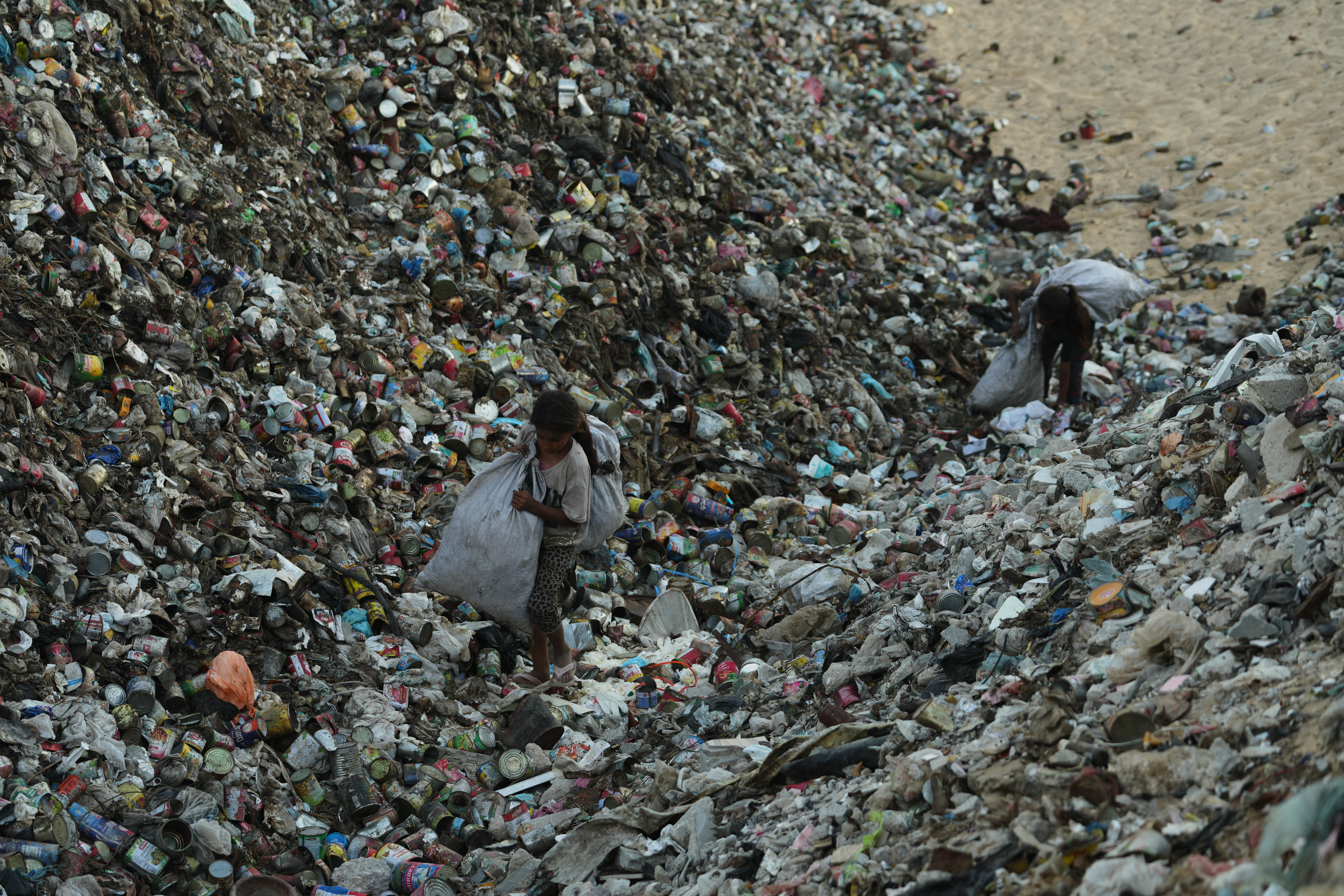
GAZA/DOHA - A Hamas source told Xinhua on Tuesday that the group had received the US Gaza peace proposal through Qatari and Egyptian mediators during a meeting in Doha and is studying it "in sincere intent" before releasing an official response.
During a joint press conference with Israeli Prime Minister Benjamin Netanyahu in White House Monday, US President Donald Trump unveiled a 20-point Gaza peace plan.
The plan includes, if Hamas agrees, an immediate ceasefire and the release of all Israeli detainees within 72 hours. Trump emphasized that Netanyahu had endorsed the proposal and also highlighted the support of several regional countries, including Egypt and Qatar.
The details of the 20-point plan show that the Gaza Strip would be demilitarized and managed by a transitional committee of Palestinian technocrats and international experts, supervised by a board headed by Trump himself, while Hamas would be excluded from the governance structure.
At the press conference, Netanyahu backed the plan, saying that it met Israel's major objectives -- the return of hostages, the dismantling of Hamas's military capabilities, the termination of the group's political presence, and the guarantee of Gaza's demilitarization.
He warned that Israel would "finish the job itself" if Hamas refused the deal. Trump, in turn, pledged "full support" for Israel under such circumstances.
On the ground in Gaza, however, many Palestinians expressed skepticism about the plan.
Alaa al-Ashqar, a displaced resident from Gaza City now living in al-Nuseirat refugee camp in the central Gaza Strip, told Xinhua that he believed the plan ignores the real priorities of Palestinians.
"It does not address the return of the displaced, the reconstruction of our homes, or the fate of the prisoners and the wounded. It focuses solely on Israeli security and hegemony," said Al-Ashqar, a father of four who lost both his home and his carpentry workshop.
"Trump only cares about his political interests and those of Israel and Netanyahu," he said.
Al-Ashqar noted that past experiences have eroded trust in such promises. "Trump announced ceasefires before while bombardments continued. These initiatives only give Israel more time to prolong the war."
"I want security, food and shelter for my children, but this plan does not provide us with anything tangible," he added.
ALSO READ: Foreign Ministry supports Gaza ceasefire, calls for immediate humanitarian aid

Trump's plan outlines provisions to expand humanitarian aid into Gaza, implement a gradual Israeli military withdrawal, and guarantee that residents would not be forced to leave the territory.
Despite these assurances, lawyer Ahmed Matar from Gaza City, now displaced in Deir al-Balah City, described the initiative as "surrender" rather than peace.
"Trump was recently talking about turning Gaza into a 'Middle East Riviera,' and now he says he will not force Gazans to emigrate. How can we trust someone who constantly shifts his words to suit Israel's interests?" Matar asked.
Having lost his job and forced to work as a street vendor, Matar said the daily reality contradicted the promises.
"The bombing continues, the crossings remain closed, and patients die due to lack of treatment. A serious plan should begin with a full ceasefire and the immediate opening of crossings," he stressed.
Matar believed a genuine solution requires "the release of hostages, the withdrawal of Israeli forces from Gaza, and the return of the Palestinian Authority to administer the Strip."
"The Trump plan seeks only to relieve pressure on Israel and give it more time to continue the war," he added.
In Khan Younis in the southern Gaza Strip, displaced resident Zakaria Obaid expressed cautious hope, but also harbored doubts. "Trump says the war must end, but he has been one of the reasons it continues, because he refuses to pressure Netanyahu or impose real obligations on Israel," he told Xinhua.
Obaid, who lost his home in Gaza City and now lives in a tent with his family of seven, said political initiatives mean little if they do not translate into concrete changes on the ground.
"We live without electricity, water or food, while politicians issue statements from distant capitals," he said.
"Trump repeats that he wants to end the war, but what we see is more destruction and casualties. If he is serious, he should stop U.S. military support for Israel and push for a clear agreement with a timetable to end the occupation," he said.
Like many Palestinians, Obaid dreams of returning home. "I want my children to live normal lives like other children around the world, but we do not trust American promises anymore. Experience has shown they serve only Israel's interests," he said.
Trump's initiative comes at a time when the humanitarian situation in Gaza is worsening rapidly, with international pressure mounting on Israel as well as the United States.
Gaza authorities report that more than 1.9 million people remain displaced, with many residing in overcrowded shelters or makeshift tents. Severe shortages of food, medicine, electricity, and clean water are also prevalent.
The conflict began after the surprise Hamas-led attack on southern Israel on Oct 7, 2023, which killed about 1,200 people and led to hostages being taken. Since then, Israel's military operations in Gaza have killed more than 66,000 Palestinians in the Gaza Strip, according to the Gaza's health authorities.
Mediation talks
Qatar said on Tuesday that it will hold mediation talks with Hamas and Türkiye over the US-proposed peace plan for Gaza.
Qatari Foreign Ministry spokesman Majed al-Ansari told reporters in Doha that Turkish representatives are set to take part in a meeting of the Gaza mediation team later in the day, while Hamas officials study the plan.
"Türkiye now stands as part of the US initiative," al-Ansari said.
He said that Hamas officials had received the full US plan late Monday night and promised to responsibly examine it.


